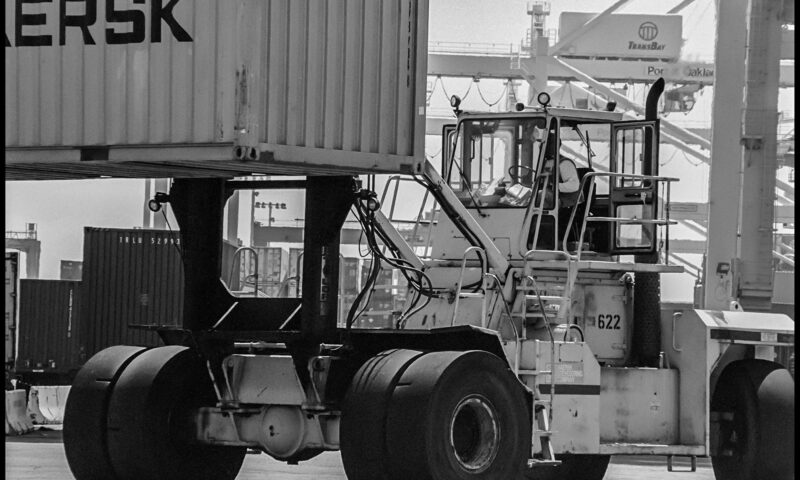
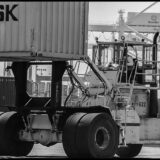
SoCal’s massive economic engine serves global shipping interests, but a study finds some residents and workers are being left behind.
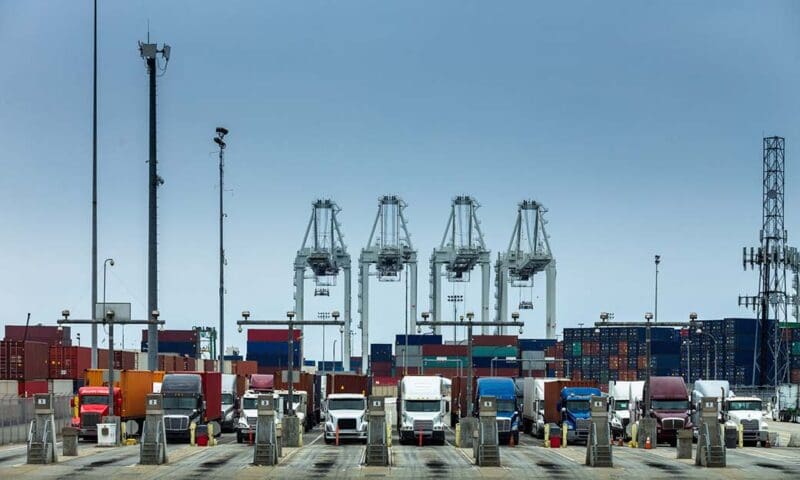
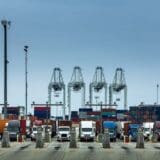
Three bills would give trucking companies less incentive to misclassify full-time drivers as contractors.
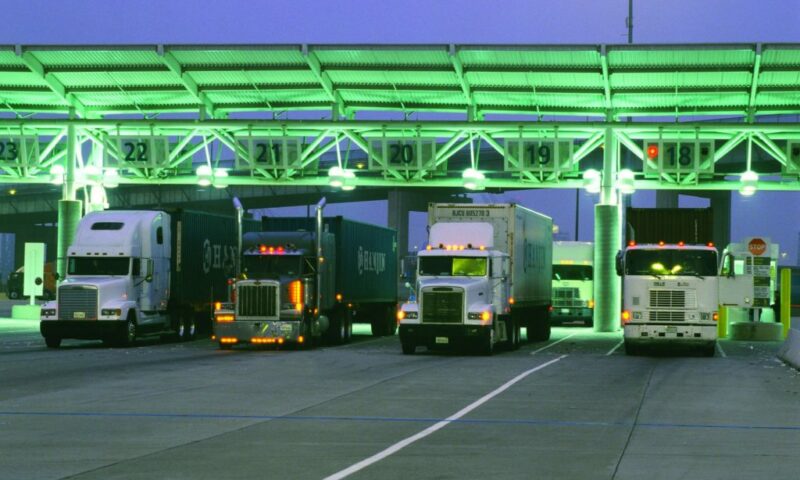
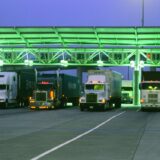
Over a span of 20 summer days truck driver Daniel Linares had moved some 110 cargo containers at the Ports of Los Angeles and Long Beach for Pacific 9, a drayage company based in Carson.
Linares’ August 15, 2014 check showed his gross earnings to be $3191.87. But another line item on the check stub offered a nasty payday shock: By Pac 9’s calculations Linares owed the company $296.47. In other words, he had received a “negative” paycheck.
Pac 9, a company whose “180-plus independent drivers” annually deliver more than 100,000 containers from Southern California’s ports and whose “customer list includes many of the most recognizable Fortune 100 companies,” according to the company website, had handed Linares the bill for the insurance, registration and other expenses incurred for the truck he leases from the company. He had already paid up-front for its fuel.
» Read more about: Port Truck Drivers Receive “Negative” Paychecks »
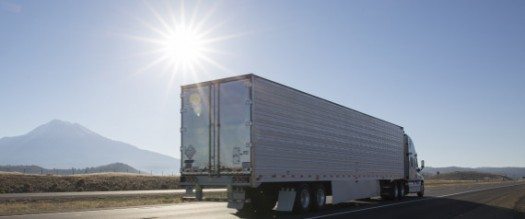
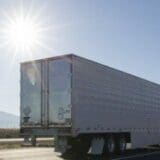
It’s been a long, dark road for America’s port truck drivers, but finally there’s a light at the end of the tunnel. After nearly 30 years of ruthless exploitation by the trucking industry, the drivers who transport the goods that fuel our consumer economy may be poised to rejoin the country’s middle class, thanks to an important determination by a regional office of the National Labor Relations Board.
Last month, the NLRB’s Los Angeles office announced the settlement of a casebrought by truck drivers against Pacific 9 Transportation Inc. The drivers alleged that the company had illegally used threats and intimidation to prevent them from exercising their right to form a union, a practice that is rampant across the country thanks to our lax labor laws.
But here’s where it gets interesting. Pac 9’s drivers are considered independent contractors by the company and, according to labor law, independent contractors —
» Read more about: America’s Sweatshops on Wheels Find a Light at the End of the Tunnel »
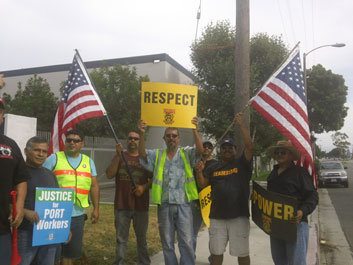
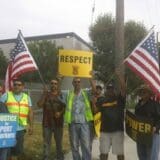
Almost 50 years ago, Bob Dylan recorded with an electric guitar and band for the first time and produced Subterranean Homesick Blues, a culture-altering event that claimed, among other things, that, “you don’t need a weatherman to know which way the wind blows.” That song signaled a cultural change that resonated with forward-looking people of the time, but the truth was ignored or dismissed by those who preferred to look back. Similarly, this is a moment when the wind is blowing strongly in the direction of justice, and those who ignore it risk being left behind.
In previous articles, we have highlighted the prevalent fiction of “independent contracting,” a deception that affects the 12,000 port truck drivers who dray goods out of the Ports of Los Angeles and Long Beach, among the 75,000 drivers nationwide. Drivers in the current system must pay a lease on a truck,
» Read more about: Port Drivers’ Misclassification Homesick Blues »
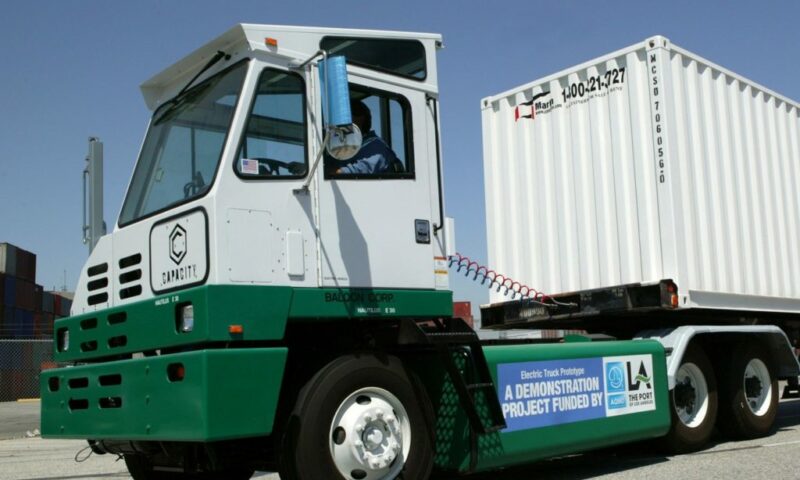
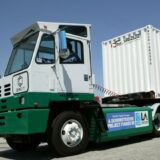
Seven years ago, the Coalition for Clean and Safe Ports came together with one simple goal: to fix the broken port trucking system. For too long, port trucking had been a case study in market failure: The trucks spewed emissions that killed three area residents each week; a fragmented, inefficient market led to delays for cargo interests; and truck drivers had among the lousiest jobs around. So we came together – environmentalists, faith leaders, immigrant rights groups, union organizers and others – and worked with the Port of Los Angeles to develop what became the award-winning Clean Truck Program (CTP).
We’ve made great strides toward some of our goals. The entire fleet of about 12,000 trucks has turned over. No more 60-year-old trucks in service (no joke!). All trucks have cleaner engines and truck emissions have decreased an estimated 80 to 90 percent. Residents around the port – and along major trade freeways like the 710 – are breathing better and we’re making a real dent in children’s asthma,
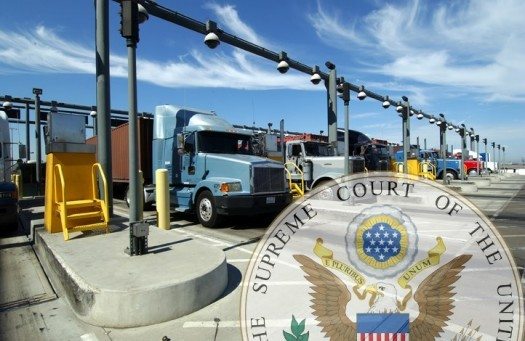
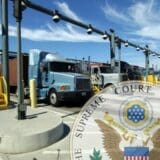
Last Thursday the U.S. Supreme Court ruled in a case that had the potential to impact millions of people in Southern California – people who have been breathing cleaner air thanks to the Port of L.A.’s Clean Truck Program. The Clean Truck Program is an innovative policy that has been successful in reducing port-related truck emissions by as much as 90 percent. But it has enemies, most notably the trucking companies who profited from the dirty, unregulated system as they worked on behalf of Walmart, Target, and every other big importer.
The national trucking lobby, on behalf of these firms, sought to kill the program by challenging it in court. As we passed environmental and public health milestone after milestone, the trucking industry filed legal motion after legal motion, and the case bounced between all levels of courts. But Thursday was the big one—the highest court in the land finally weighed in on the legality of the program overall.
» Read more about: Supreme Court Blocks Industry Bid to Kill Clean Truck Program »
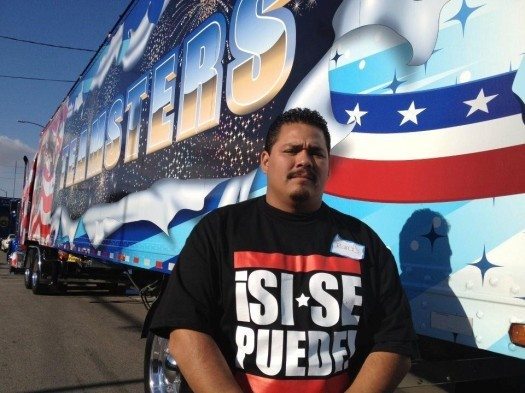
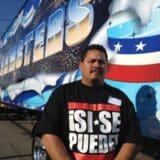
(Orlando Ayala has been a truck driver at the ports of L.A. and Long Beach for 10 years. He recently sat down and talked to LAANE Deputy Director Patricia Castellanos about the successful effort to improve conditions at Toll, the global logistics company where he works. Yesterday marked the one-year anniversary of the election in which Toll workers chose to be represented by a union – the first such election in three decades.)
I was recently accused of thinking with my heart and not with my head, of letting my passions and outrage get the best of me and guide my actions. At the time, this wasn’t a compliment. But these traits have served me well. If not for them, I may not have crossed multiple borders seeking a better life in the U.S., or been driven to action by the outrage I felt at seeing injustices suffered by the thousands of port truck drivers at the largest port in the country.
» Read more about: How Organizing for a Union Changed My Life »

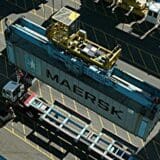
In 1996 I began working at the Parent Center of Wilmington Middle School. I quickly learned how students suffer from asthma, respiratory deficiencies, malnourishment, cancer and autism. Many of these poor health conditions are linked to the pollution and poverty of the area.
I decided to join the Coalition for Clean & Safe Ports, hoping to help clean our air and reduce disease in my community. Over the past several years we have made huge progress. I believe these accomplishments were possible because so many of us came together, from residents and community-based organizations to port truck drivers, lawmakers and unions. Although it is a cliché to say there is strength in unity, in this case it was true.
Today we are fighting to change the conditions of port truck drivers – and we are still unified.
We believe that everyone who works should be valued by their employer.

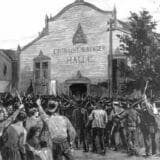
(This is the first in a three-part series about the misclassification of employees as independent contractors – a practice which affects millions of workers in the U.S., including most of the nation’s nearly 100,000 port truck drivers).
At the zenith of the Occupy movement, some commentators adopted the term “neo-feudalism” to describe the relationship between powerful corporations and the rest of society. Did this rhetoric have a basis? Yes and no. A portion of today’s workforce labors under conditions that resemble the dark era of the 19th century more than they do either the medieval or the modern one.
First, a little background. In the social and legal world of medieval England (which, for better or worse, begat our legal system), one’s employer was one’s master, landlord, and protector – and all these relationships were encased within the Church and the great chain of being.
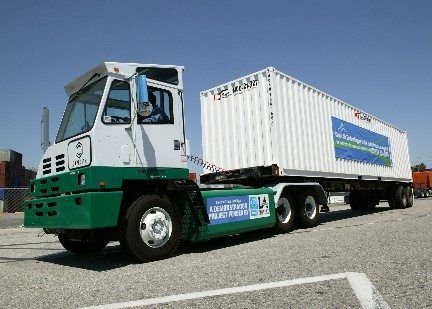
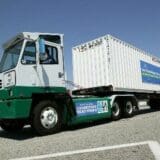
Imagine you just finished your standard 65-hour work week. You’re exhausted, you want to go home and spend time with your family – you never really get to see them but for your one day off – but you know instead you’re going to fall asleep within minutes of getting home. Your legs and back ache from today’s 12-hour shift, but at least it’s payday. You wince when you see your check: It’s going to be another month of some tough decisions about which bill to forgo, but at least the rent will get paid and you’ll be able to pick up some groceries.
Except that as he hands you your check, your boss tells you that he’s adding another five hours to your weekly schedule. You’re not going to get paid any more money, but you will have to work more hours.
This is essentially the situation that truck drivers at the Ports of Los Angeles and Long Beach are about to find themselves in as changes roil the industry.
» Read more about: Carriers Stick Port Truck Drivers With Chassis Fees »